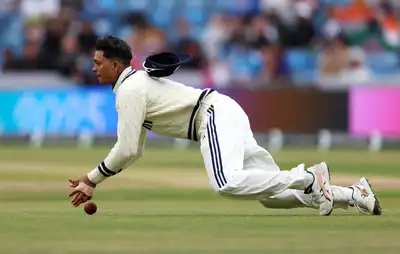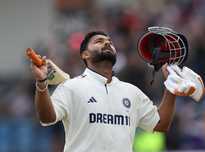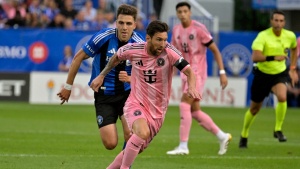Brain stroke is sometimes known as a silent emergency that presents without warning, and the outcomes can be devastating. While stroke is a leading cause of death and disability, awareness of stroke and knowledge of stroke risks and prevention are still low, and stroke rates remain high. It is possible to spare serious suffering by becoming aware of stroke risks, recognizing the urgency and acting quickly, and taking measures to prevent it in the first place to save lives.
How Dangerous can a Brain Stroke Be?A stroke is recognized as a loss of oxygenated blood supply to an area of the brain. This can happen in two ways.
- Ischemic Stroke: Where a clot blocks blood flow to the brain.
- Hemorrhagic Stroke: Where a burst blood vessel causes bleeding inside of the brain.
The effect begins immediately with brain cells starting to die within minutes due to lack of oxygen.
- Second leading cause of death globally
- Major cause of long-term disability such as paralysis, loss of vision, memory impairment, or speech problems
- How significant is the Golden Hour: Treatment in the first 3–4.5 hours can prevent irreversible brain damage.
“Each borrowed minute of blood flow during a stroke decreases the likelihood of regaining functionality or independence. Timely intervention is the difference between regaining independence or experiencing a lifelong disability” Dr. Gupta said.
The key symptoms you should never ignoreThe warning signs of stroke are sudden and dramatic. Quick recognition is critical. Experts recommend remembering the FAST rule:
- F – Face Drooping: Sudden weakness or numbness on one side of the face.
- A – Arm Weakness: Trouble raising one or both arms.
- S – Speech Difficulty: Slurred or confused speech.
- T – Time to Act: Seek immediate medical help—every second counts.
• A sudden, severe headache with no clear cause
• Blurred or double vision
• Loss of balance, dizziness, or poor coordination
• Sudden confusion or difficulty understanding speech
Preventive lifestyle and medical measuresDr. Gupta Explains, although strokes can occur suddenly, the good news is that nearly 80% of strokes are preventable through better habits and timely physician evaluation and prescription interventions.
Lifestyle precautions1.Monitor Blood Pressure: High BP is the single primary risk factor
2.Control Diabetes & Cholesterol: Continuous monitoring of diet and medications when required
3.Don't smoke or limit alcohol: They are both health impacts and raise your chance of stroke
4.Exercise: 30 minutes or more modulate activity on five occasions weekly.
5.Eat a balance diet: Choose fruits, vegetables, whole grains, nuts and limit the salt
5 Exercises that will keep you young
•Screen regularly: Early detection of hypertension, diabetes, and heart rhythm problems.
•Comply with medication: Ensure to take prescribed medicines in the prescribed manner.
•Familiarity with family history: If you have stroke in your family, you may consider having more caution or obtaining more regular screenings.
A brain stroke is one of the most urgent medical emergencies, and thankfully, it is also one of the most preventable. By understanding the symptoms, acting promptly in emergencies, and adopting a healthier lifestyle, we can greatly lessen the effects of brain strokes.
Awareness is the first step, prevention is the best weapon, and timely response is the best treatment.
Dr. Vipul Gupta, Director – Neurointerventional Surgery, Sir H.N. Reliance Foundation Hospital, Mumbai



 SA20 Teams Given Six Retention Options Ahead of Season 4 Auction
SA20 Teams Given Six Retention Options Ahead of Season 4 Auction
 Gavaskar Calls for Kuldeep Yadav's Inclusion in Second Test Amid Bumrah Fitness Concerns
Gavaskar Calls for Kuldeep Yadav's Inclusion in Second Test Amid Bumrah Fitness Concerns
 Former Selector Blasts India's Fielding Errors After Test Defeat to England
Former Selector Blasts India's Fielding Errors After Test Defeat to England
 Rishabh Pant is 'Reinventing' Cricket, Says Greg Chappell, Following Heroic Test Display
Rishabh Pant is 'Reinventing' Cricket, Says Greg Chappell, Following Heroic Test Display
 5 Daily Practices That Radiate Confidence
5 Daily Practices That Radiate Confidence
 Test Your Focus: Spot the Hidden Word in This Optical Illusion Challenge
Test Your Focus: Spot the Hidden Word in This Optical Illusion Challenge
 Messi, 38, Recreates "Ankara Messi" Magic with Stunning Solo Goal for Inter Miami
Messi, 38, Recreates "Ankara Messi" Magic with Stunning Solo Goal for Inter Miami
 Expert Dismisses Claim That Eating Fruit on Empty Stomach Raises Diabetes Risk
Expert Dismisses Claim That Eating Fruit on Empty Stomach Raises Diabetes Risk
 Nine-Year-Old Indian Chess Prodigy Holds Magnus Carlsen to Draw in Online Tournament
Nine-Year-Old Indian Chess Prodigy Holds Magnus Carlsen to Draw in Online Tournament
 Mirabai Chanu Reveals Relentless Demands of Weightlifting: Training, Weight Control Consume Mind Even During Family Time
Mirabai Chanu Reveals Relentless Demands of Weightlifting: Training, Weight Control Consume Mind Even During Family Time